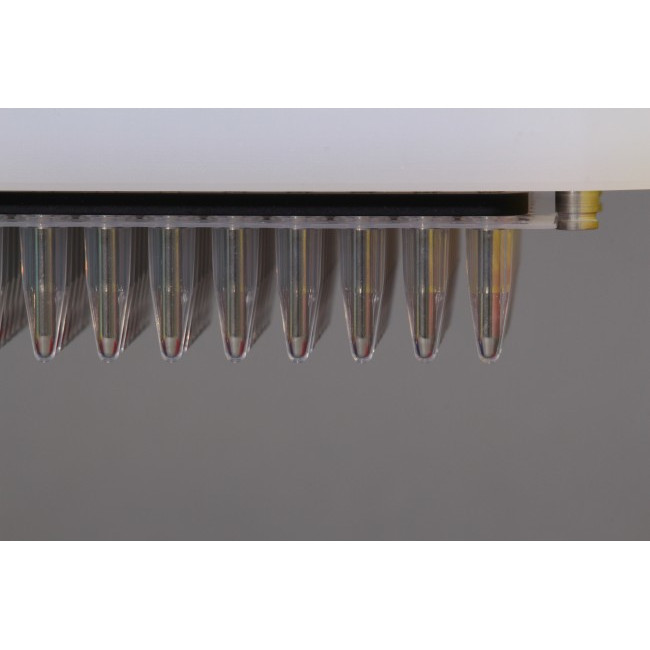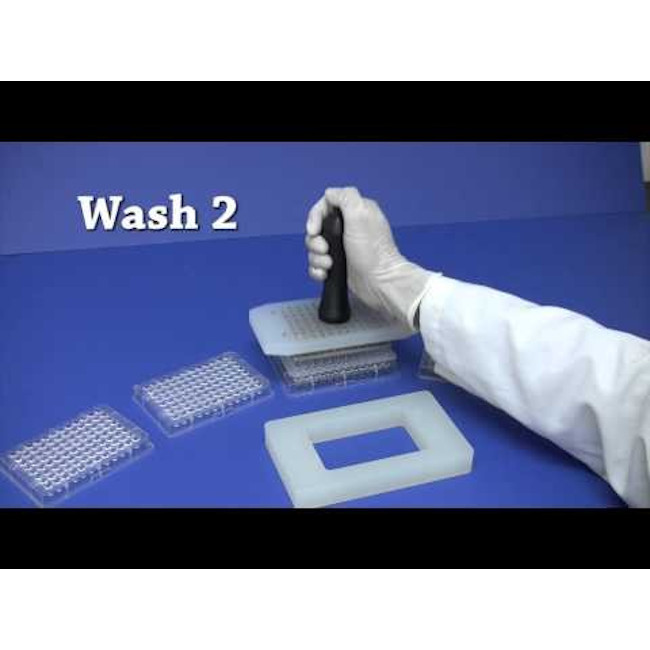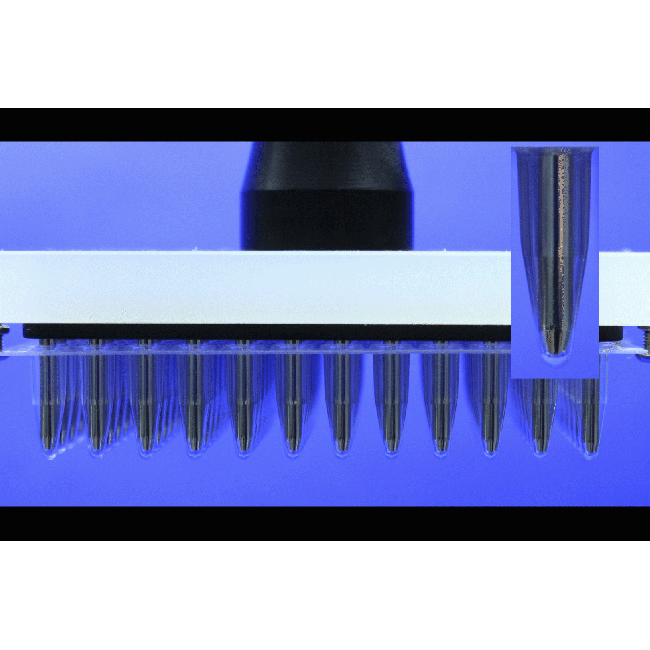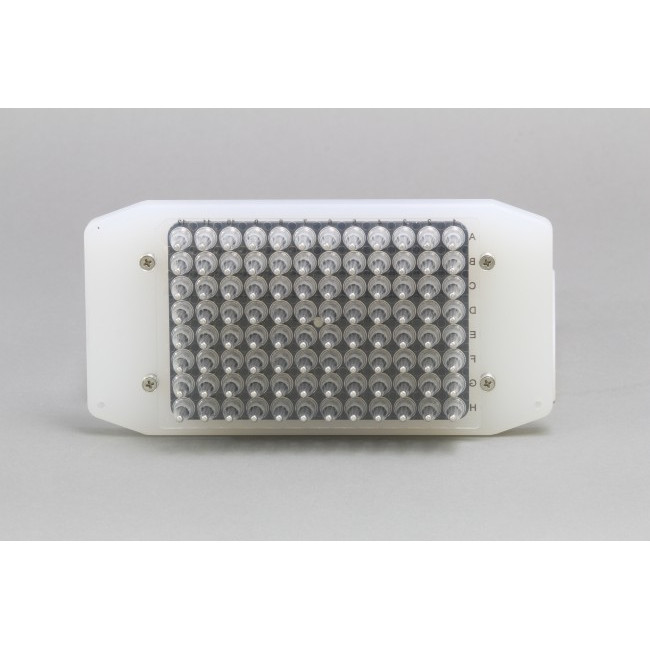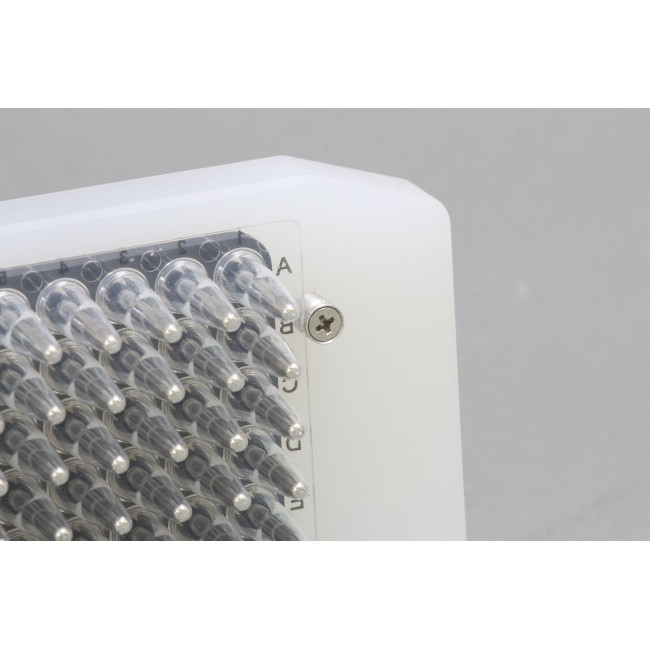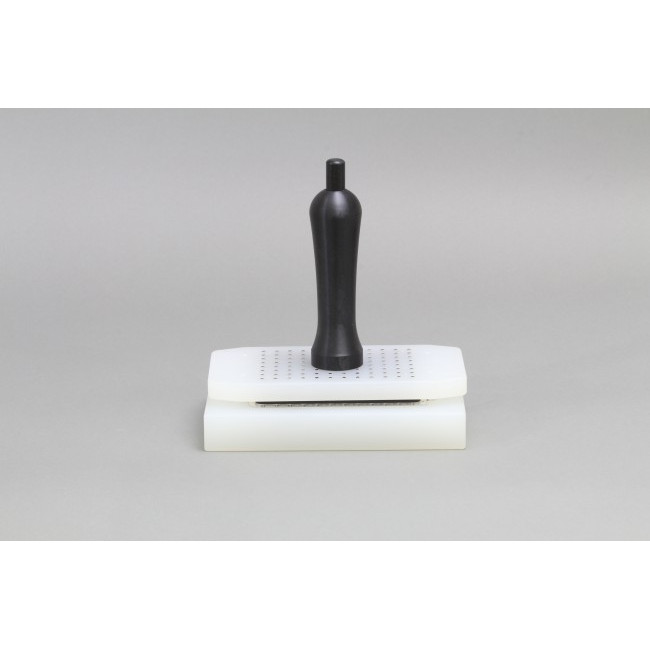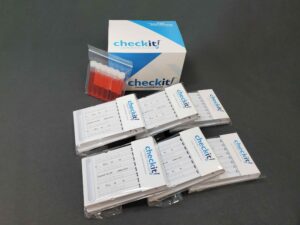The VP 407AM-N1 was designed to move beads between microplates for washing or elution quickly and efficiently. The process simplifies next generation sequencing sample preparation by eliminating the need for multiple disposable tip based transfers. The device works by clipping a standard non-skirted PCR plate over the 96 magnetic pins to act as a sterile barrier. When dipped into the source plate, the magnetic beads are attracted to the pins and stick to the outside of the PCR plate’s wells. The large surface area and strong 52 MGO NdFeB magnetic pins ensure fast separation and zero bead loss. Once attached to the plate, the beads can be transferred to the recipient plate by placing the replicator pins back into the buffer and releasing the plate.
PCR plates to use with the VP 407AM-N1:
- VP 407AM-N-PCR(Pack of 10)
- VP 407AM-N-PCR(Case of 100)
Other brands might work as long as they have the following criteria:
- Flat top
- Full height (not low profile)
- No skirt
- They match the contour of the pin leaving a minimal gap between pin and plate
- Minimum length across top of plate of 119mm
Standard 96 well plates to use with the VP 407AM-N1:
- Corning/Costar 3797, 150 ul working volume
- VP 416S Square well plates, 400 ul working volume
- VP 416S-1 Square well plates, 700 ul working volume
Bead-Extractor Assisted Ready-to-Use Reagent System (BEARS) for Immunoprecipitation Coupled to MALDI-MS.Li H1,2,3, Popp R1, Chen M4, MacNamara EM4, Juncker D2,3, Borchers CH1,5,6,7.Abstract
Quantitative protein assays play an important role in the study of biological functions. Immunoassays and mass spectrometry are two main technologies for quantifying proteins in biological samples. The combination of immunoprecipitation (IP) with MALDI technology delivers high assay sensitivity and specificity, but the sample preparation procedure involves multiple washing and transfer steps. These steps can be performed either manually (requiring significant time and labor) or automatically (requiring the purchase of a complex liquid-handling workstation). This bottleneck has limited the widespread adoption of this technology. We present here the Bead-Extractor Assisted ready-to-use Reagent System (BEARS) technology for simplified, low cost protein and peptide immunoprecipitation combined with MALDI-MS detection. All of the reagents are stable during long-term storage and can be prepared in advance. In the BEARS technology, a magnetic-bead extractor is used to handle beads from 96 wells simultaneously. A BEARS-based method was developed for plasma renin activity (PRA) and was evaluated on fifty-three clinical samples. These experiments showed that the BEARS assay had an LOD and linear range comparable to the manual method and an automated iMALDI PRA assay, but was 4-times faster than the manual approach. The BEARS iMALDI results also correlated well with a conventional ELISA PRA assay, with a coefficient of determination of 0.98. The BEARS technology provides convenience and affordability, and extends the use of IP-based mass spectrometry technology to most research and clinical laboratories, including those in developing countries.
- PMID:
- 28257572
- DOI:
- 10.1021/acs.analchem.6b04169
